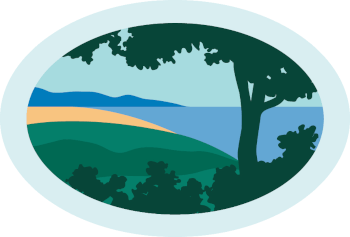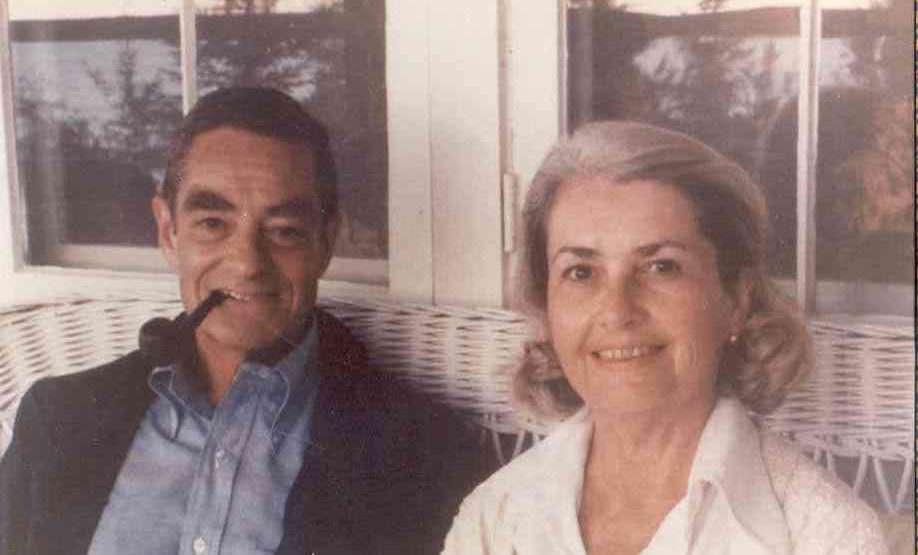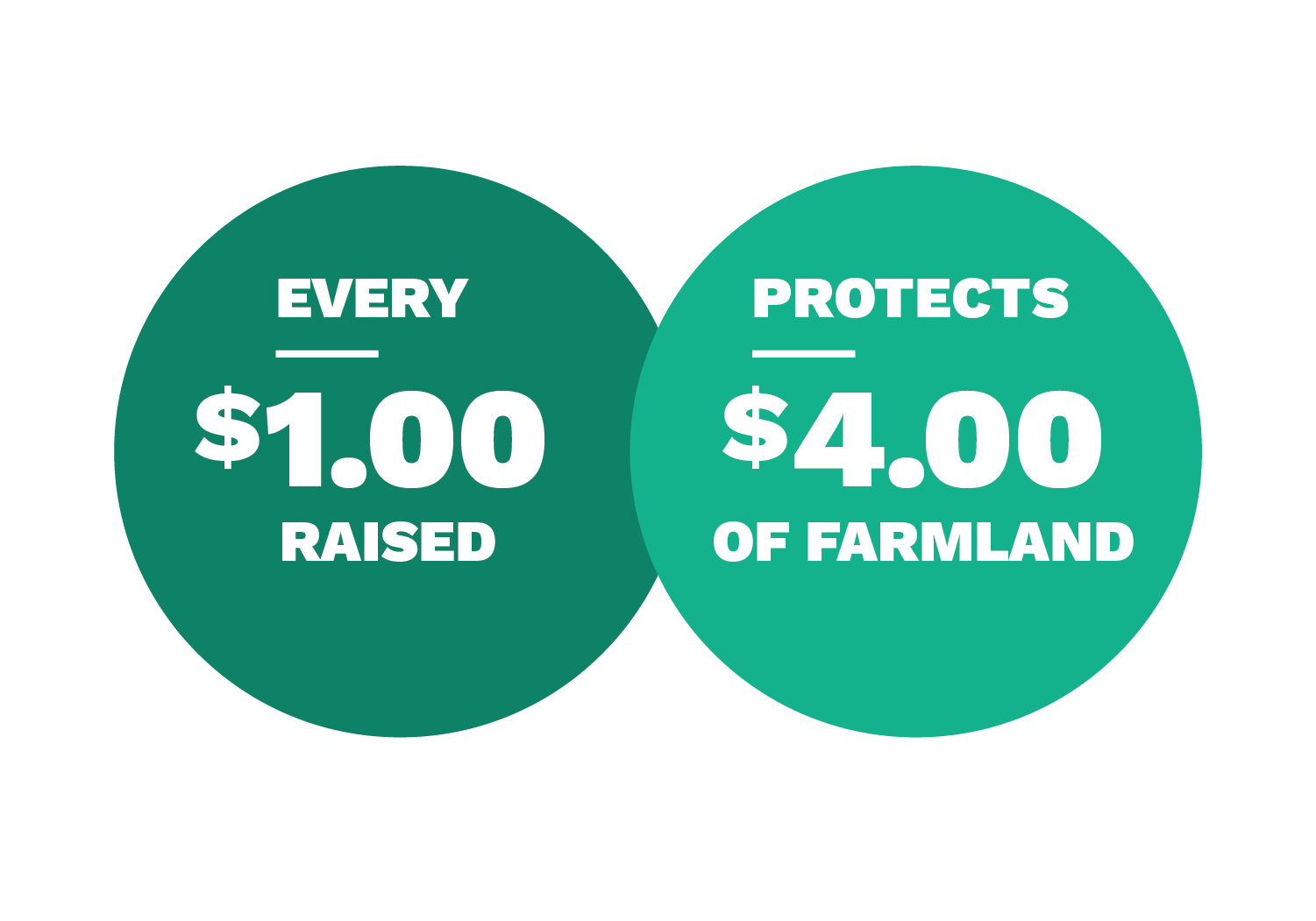From our 2010 Fall Newsletter
Not everyone who is born under a lucky star chooses to share its light. Not so Bill and Jane Fortune. The Indianapolis couple and longtime Leland summer residents believed it was their responsibility to use the gifts they had been given to create good in the world. And so they were quiet champions of the underdog, protectors of the environment and worked in the political arena on matters of equality and justice.
Jane died last year, Bill passed in 2004. Each left a generous bequest to the Leelanau Conservancy but their story has never been told. The couple had insisted on anonymity during their lifetime. But their four children (Bill Jr., Pam, Jane and Rich) would like their parents’ legacy to be celebrated. “It’s like a veil has been pulled back,” says Bill Jr. “They would have been uncomfortable now, would argue with us and say, ‘Please don’t.’ They worried that any attention toward them would take away from the purpose of the gift.”
The Fortune’s impact on our organization—and many others–is sizeable. The couple were lead donors for our Leland Village Green and Whaleback projects. When Bill Sr. passed away, we received a gift that jumpstarted our endowment fund and provided a meaningful layer of stability to our organization. After Jane died last year we received a second sizeable bequest. “We would not be the organization we are today without the help of the Fortune family,” says Director Brian Price.
Bill Fortune Sr. began coming to Leland as a toddler; his parents owned a cottage on North Lake Leelanau. After he and Jane were married, they too brought their family to Leland for the summers, staying everywhere from the cottage to the Leland Lodge to rental properties on Lake Michigan. In the ‘70s, they bought what is known as the historic Blackledge Cottage, which sits in the shadow of Whaleback.
The cottage features a classic wraparound screen porch with wicker furniture. It overlooks Lake Michigan’s ever changing moods, pounding surf and spectacular sunsets. Jane adored the porch, and Leland. “Every summer when Mom arrived at the cottage, her first words were, ‘I’m home,’ and we, her children, all feel that same way,” says daughter Jane. “It’s a magical place and when I’m not up there, I miss it terribly.” Today, all of the Fortune children own homes in the Leland area.
Their childhood summers began with loading the station wagon when school let out. The family, along with two dogs and cook, Nettie, crowded in for the 400-mile trip north. “We looked like the Beverly Hillbillies,” laughs Bill.
Jane recalls hours spent hours at the beach. “We soaked up the sun, and searched for heart-shaped rocks and driftwood that resembled whales,” she says. Her mom particularly loved blue stones. There was always a jigsaw puzzle in progress, nightly campfires, and an Ouija board to quiz.
“Back then, there were no soccer camps that today end the summer so early for a lot of families,” continues Bill. “Kids did not drive the bus in my parents’ generation. We were not the center of my parents’ universe, we were the outer planets.” He recalls being rustled out of bed one night at 2 a.m. to see Haley’s Comet.
“I was 10 yrs old,” he says. “I had no interest in getting up. But my parents insisted I see this magnificent sky. If I had been at soccer camp I would have missed it.”
The environment was important to Jane and Bill. “They talked often about what we were doing to it and how we could be stewards of it,” adds Bill. The couple was one of the first to donate to save Fishtown and underwrote expenditures that made the Hoosier National Forest possible.
His sister, Pam, says her parents “were an excellent model of how a couple can live and love each other for 66 years.” She admired her mother’s hard work in establishing the Indiana Dyslexia Society and Camp Delafield, a summer camp for learning disabled children.
Economically disadvantaged children tugged at Bill and Jane’s hearts. The couple spent an afternoon at a boys’ home in Indiana that left such an impression on Bill Sr. that he provided generously for the school in his will. “It didn’t take him long to understand their mission,” says Bill Jr. “He could see it, feel it, in that short time.”
In addition to philanthropy, politics occupied Bill Sr.’s days. He served many roles, including state legislator. Bill Jr. says his father could have been governor of Indiana but refused to bend to the will of special interests and was called “Fortune Turncoat” when he switched to the Democratic Party.
Bill Sr.’s character was shaped by a housefather at a New Jersey boarding school. “This man, according to my dad, was a man of great principles, and left him at the age of 12 with a sense of his life’s purpose,” says Bill. After boarding school, Bill Sr. attended Princeton, where he later established a speaker series. Jane Goodall, the famed scientist who studied primates in Africa, was the first speaker.
Late in life, Bill Sr. spent much of his cottage time writing The Moment. “The jest of the book is that he believed everyone had moments in their lives that are pivotal,” explains Bill. “He contended that there are only a few lucky ones who see the moment as it is occurring—moments that can change their life and those around them. He felt it had happened in his life. So his message was to pay attention to your life because those moments are out there and that you can make a difference.”
“As philanthropists, they were very powerful role models,” concludes Jane. “Giving back was in their DNA. They believed that since they were so fortunate, it was their responsibility. My Dad never passed a beggar on the street, without acknowledging him or her and giving a dollar or two. We, as their children, are also very fortunate, and feel it is our responsibility to continue Mom and Dad’s legacy, and to make a difference too.”




